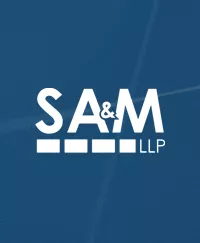It’s official. Crowdfunding is law.
What is crowdfunding? Crowdfunding has been used to describe a number of methods that enterprises and collections of people may use to fund or support various initiatives. For startup companies looking to raise debt or equity from the sale of securities, crowdfunding refers to raising such funds, primarily over the Internet, in smaller amounts from a larger pool of investors though intermediaries.
On March 27, 2012, the House accepted the Senate version of the Jumpstart Our Business Startups Act (the “JOBS Act”) which provides for amendments to our securities laws to allow for crowdfunding activities. President Obama signed the JOBS Act into law on April 5, 2012. In order for crowdfunding to get underway, the SEC and other regulatory agencies will need to adopt certain rules and regulations implementing the new law. The law provides that these measures should be adopted within 270 days of signing by the President, and the SEC has already begun to collect comments from the public for this purpose.
This is exciting news for companies that are attempting to raise capital. Title IV of the JOBS Act will allow business enterprises to raise capital through crowdfunding initiatives. These companies can raise capital from individual investors by offering stock for sale through their third-party intermediaries. The JOBS Act adds a new Section 4(6) to the 33 Act, which provides a new exemption for the small business from registration for the offer and sale of securities in connection with crowdfunding transactions. The exemption would be available for offerings not greater than $1M in the aggregate during any twelve month period, subject to further limitation on a per investor basis. The amount sold to any particular investor during a twelve month period by all crowdfunding issuers may not exceed:
(A) for investors with less than $100,000 in net worth or annual income, the greater of $2,000 or 5% of their annual income or net worth, and
(B) for investors with greater than $100,000 in annual income or net worth, up to 10% of the investor’s annual income or net worth, not to exceed $100,000.
Securities issued pursuant to the new 4(6) exemption will be considered (1) “covered securities” which means that they will be exempt from state Blue-Sky registration and (2) “restricted securities,” subject to Rule 144 restrictions for public resales. The one-year restriction on resale described above would apply to private as well as public resales. Another benefit to small businesses – the crowdfunded investors will not count against the shareholder cap for triggering public reporting requirements with the SEC.
As described above, sales of securities under the new crowdfunding exemption must occur through third-party intermediaries. Who can serve as an intermediary? An intermediary must be a registered broker or funding portal (as defined in new Section 3(a)(80) of the 34 Act). It is not specified whether the intermediaries must be an electronic system or manual brokerage operation.
Regulations still need to be adopted regarding these intermediaries. Funding portals will be required to register with the SEC and any applicable self-regulatory organization, but are conditionally exempt from registration as a broker dealer. It is expected that FINRA will become the self-regulatory organization.
What will it cost? Restrictions regarding fees and how much an intermediary may charge an issuer or investor in connection with a transaction are not specified. However, the JOBS Act does provide that the intermediary and its directors, officers or partners cannot have a financial interest in an issuer using its services, which would presumably preclude taking stock for providing the service. Intermediaries also may not compensate promoters, finders, or lead generators for providing them with the personal identifying information of any potential investor. Other restrictions regarding disclosures, risk, cancellation and protection of privacy have been set in place for intermediaries and issuers to protect investors and reduce the risk of fraud with respect to such transactions. It is expected that these restrictions will be further clarified as the SEC adopts the needed regulations.
How does the JOBS Act compare against Rule 506 under Regulation D? Separate from the crowdfunding measures, the JOBS Act also requires that the SEC amend Rule 506 under Regulation D to permit allow general solicitation in 506 offerings in which sales are made only to accredited investors. It also provides for an exception from broker-dealer registration requirements for platforms or mechanisms that aim to facilitate offerings under Rule 506 of Regulation D. More specifically, a person (including a platform or other service provider and its associated persons) would not be obligated to register as a broker-dealer for engaging in any of the following:
(A) permitting offers, sales, purchases, negotiations, general solicitations or similar activities in connection with a 506 offering,
(B) co-investing in the 506 offering, or
(C) providing ancillary services, such as due diligence and documentation, in connection with the 506 offering.
To be eligible for this exemption, however, the person and its associated persons:
(A) may not receive any compensation in connection with a purchase or sale in the 506 offering,
(B) may not have possession or control of customer funds or securities in connection with a purchase or sale in a 506 offering, and
(C) may not be subject to statutory disqualification, as defined in the 34 Act.
Rule 506 may therefore serve as an alternative type of “crowdfunding” exemption for accredited investors without any of the limitations in related to the new Section 4(6) exemption for crowdfunding.
This is an exciting time for emerging growth and other small companies who now have additional innovative opportunities to raise capital. We will continue to monitor this development provide updates as they become available. For more information regarding this Alert, contact John McIlvery, Group Chair of SAM’s Public Securities practice area.
